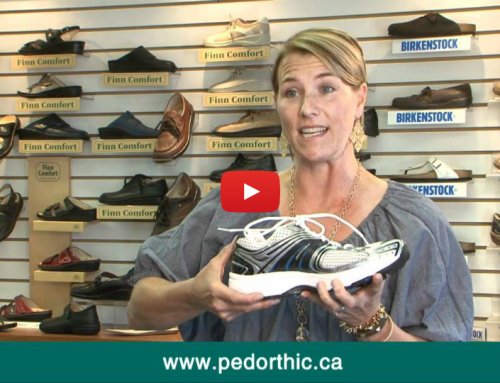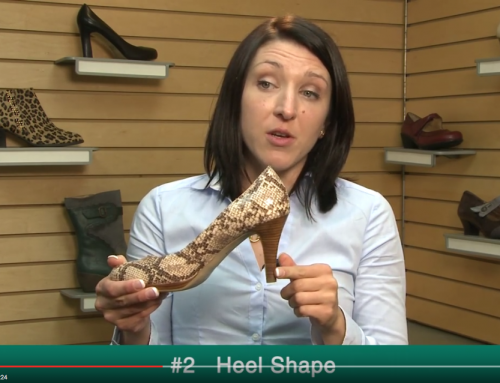When I consult with patients I always counsel them on the importance of wearing appropriate footwear as supportive, well-fitting footwear plays a vital role in keeping people mobile and pain free. However, wearing supportive well-fitting shoes is sometimes not enough for people with foot conditions and specific foot types. In these cases we may recommend orthopaedic shoes.
You may require orthopaedic shoes if you have foot pain, a foot or toe deformity, a complicated or severe foot injury, extremely wide bunions, an open sore or a neurological disease that affects your feet. The more abnormal your foot mechanics are, the more likely you will require orthopaedic shoes. Orthopaedic shoes are shoes that support or accommodate the mechanics and structure of the foot, ankle and leg and are specifically designed to support or accommodate a particular medical condition, such as plantaar fasciitis or flat feet. They have a number of medically beneficial features and functions that separate them from everyday footwear, including a torsionally strong, well-rockered midsole and outsole to help you walk normally. This means the sole shouldn’t bend easily and should have a rounded sole. A removable sock liner to accommodate custom orthotics. A variety of widths to ensure proper fit for a variety of foot shapes and a heel counter that is appropriate for the patient’s medical need.
As people age parts of the body begin to break down so often older people will require orthopaedic shoes. However, orthopaedic shoes can be recommended for people of all ages as poor foot mechanics can affect everyone, young and old. Fortunately today orthopaedic shoes don’t have to be ugly. There are a number of relatively stylish options available for patients of all ages and fashion tastes.
When it comes to selecting your orthopaedic footwear, consult a Canadian Certified Pedorthist. The pedorthist will conduct a full assessment of your lower limbs and tell you if orthopaedic shoes will help you. The pedorthist will also measure your feet properly and let you know which orthopaedic features are required for your foot type and condition. Just because a shoe is classified as orthopaedic does not guarantee it will be the same quality and provide the same benefits as other orthopaedic shoes. A Canadian Certified Pedorthist will provide you with all the advice you need so you remain mobile and pain free.




